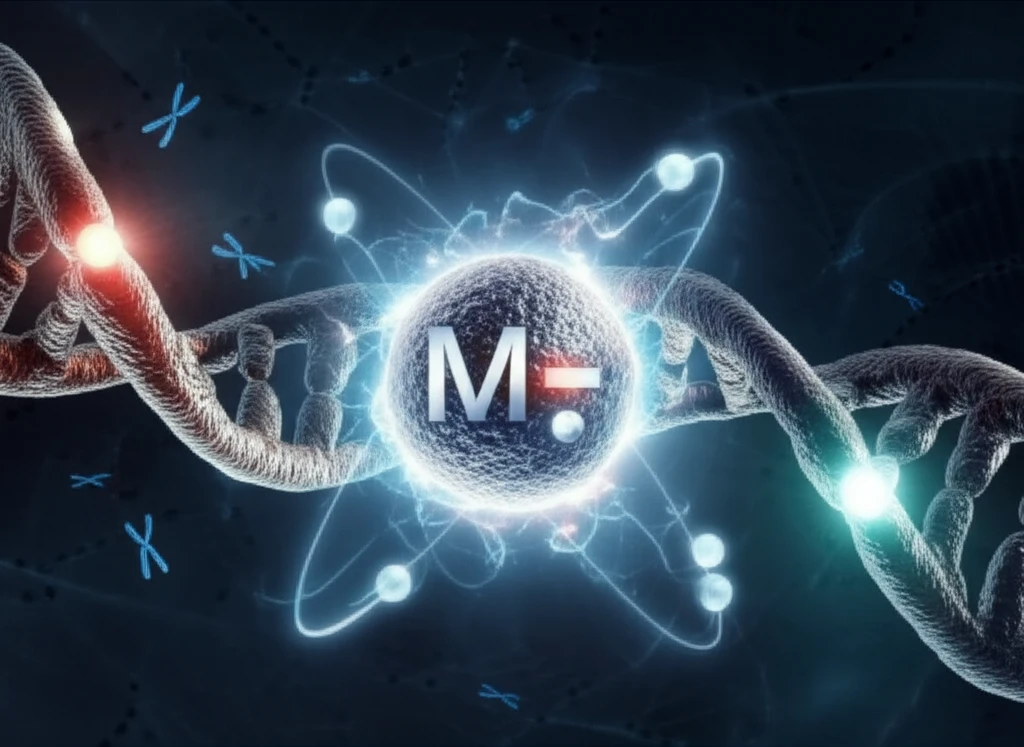
Unlock Longevity: Can Correcting Magnesium Deficiencies Extend Your Lifespan?
"Explore the groundbreaking research on magnesium's role in aging, telomere health, and how optimizing your intake could lead to a longer, healthier life."
In our relentless pursuit of a longer, healthier life, we often explore various diets, exercise regimens, and supplements. But have we considered the vital role of magnesium, an often-overlooked mineral, in the aging process? Emerging research suggests that correcting magnesium deficiencies could be a key to unlocking longevity.
Magnesium is essential for over 300 enzymatic reactions in the body, impacting everything from DNA stability and protein synthesis to muscle and nerve function. A deficiency in this crucial mineral has been linked to a host of age-related issues, including cardiovascular problems, insulin resistance, and increased oxidative stress. The groundbreaking study from Clinical Interventions in Aging explores how optimizing magnesium levels could influence telomere length, a critical marker of cellular aging.
This article will delve into the science behind magnesium and aging, exploring its impact on telomeres, mitochondrial function, and overall lifespan. We'll uncover the latest research, discuss how to identify a potential deficiency, and offer practical strategies to ensure you're getting enough of this vital mineral. Whether you're a health enthusiast, someone concerned about aging, or simply curious about the power of nutrition, this comprehensive guide will provide valuable insights into the potential of magnesium for a longer, healthier life.
The Magnesium-Longevity Connection: How Does It Work?

The link between magnesium and longevity isn't just a fleeting trend; it's rooted in solid scientific principles. Magnesium plays a pivotal role in maintaining the health and stability of our DNA, the very blueprint of life. It also supports the function of telomeres, protective caps on the ends of our chromosomes that shorten with age. When telomeres become too short, cells can no longer divide and replicate properly, leading to cellular senescence and age-related decline.
- Telomere Health: Magnesium supports the enzyme telomerase, which helps maintain and even lengthen telomeres. This can slow down the aging process at a cellular level.
- DNA Stability: Magnesium stabilizes DNA, reducing the potential for oxidative stress and promoting accurate DNA replication and transcription.
- Mitochondrial Function: Magnesium is crucial for the healthy function of mitochondria, the powerhouses of our cells. Efficient mitochondrial function is essential for energy production and overall cellular health.
- Antioxidant and Anti-inflammatory Properties: Magnesium acts as an antioxidant and calcium blocker, combating oxidative stress and inflammation, both of which contribute to aging.
The Takeaway: Empowering Your Health with Magnesium
While research continues to unfold, the evidence suggests that maintaining optimal magnesium levels is a vital component of a comprehensive anti-aging strategy. By understanding the critical role of magnesium in telomere health, DNA stability, and mitochondrial function, you can take proactive steps to support your overall health and potentially extend your lifespan. Consult with your healthcare provider to determine if you have a magnesium deficiency and discuss the best strategies for optimizing your magnesium intake through diet, supplementation, and lifestyle modifications. Remember, a proactive approach to health is the best investment in a longer, healthier future.
